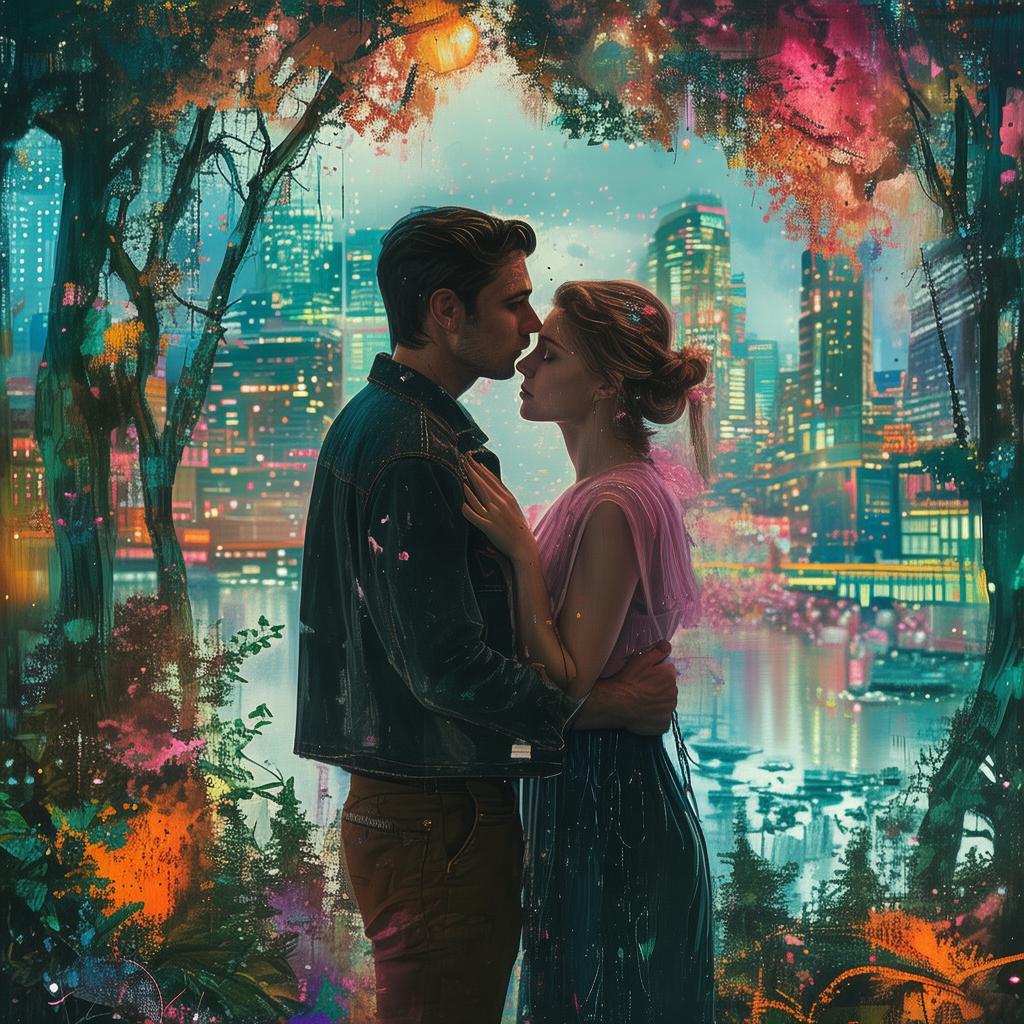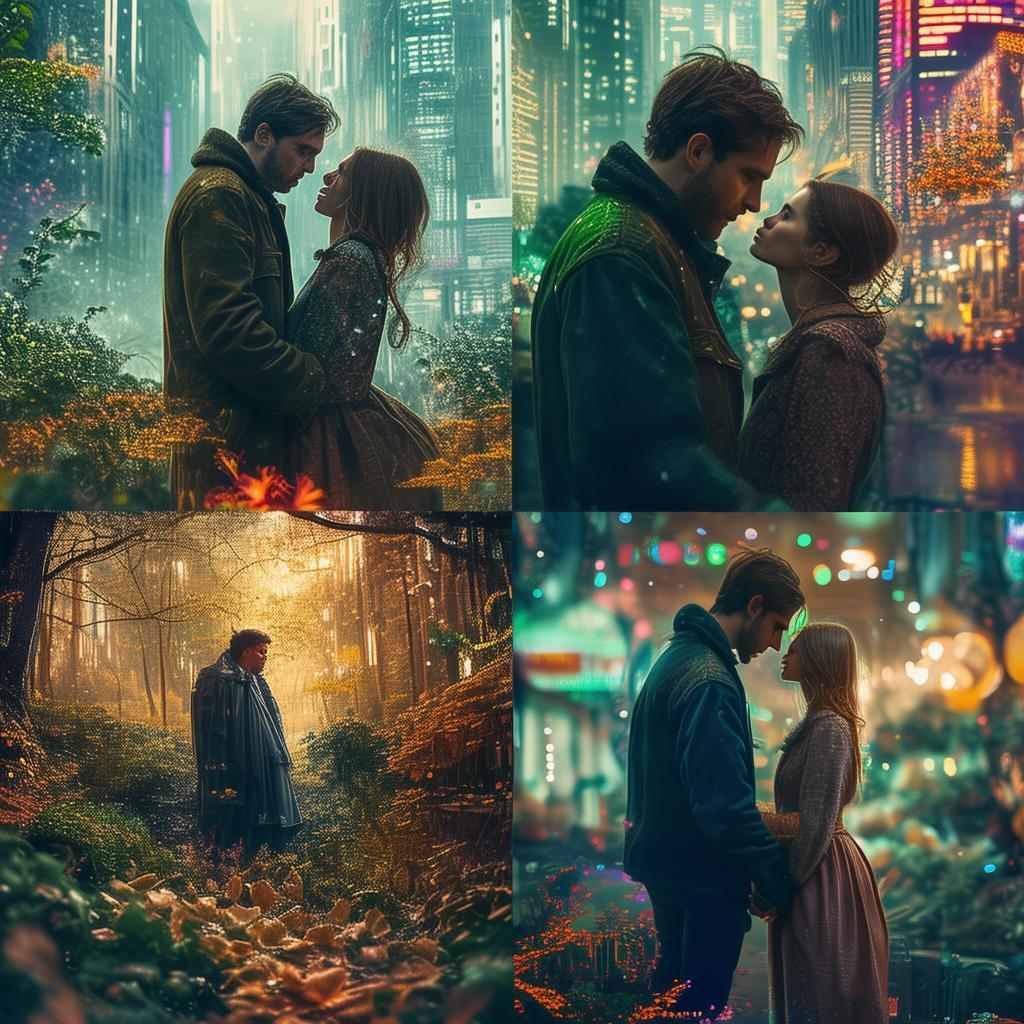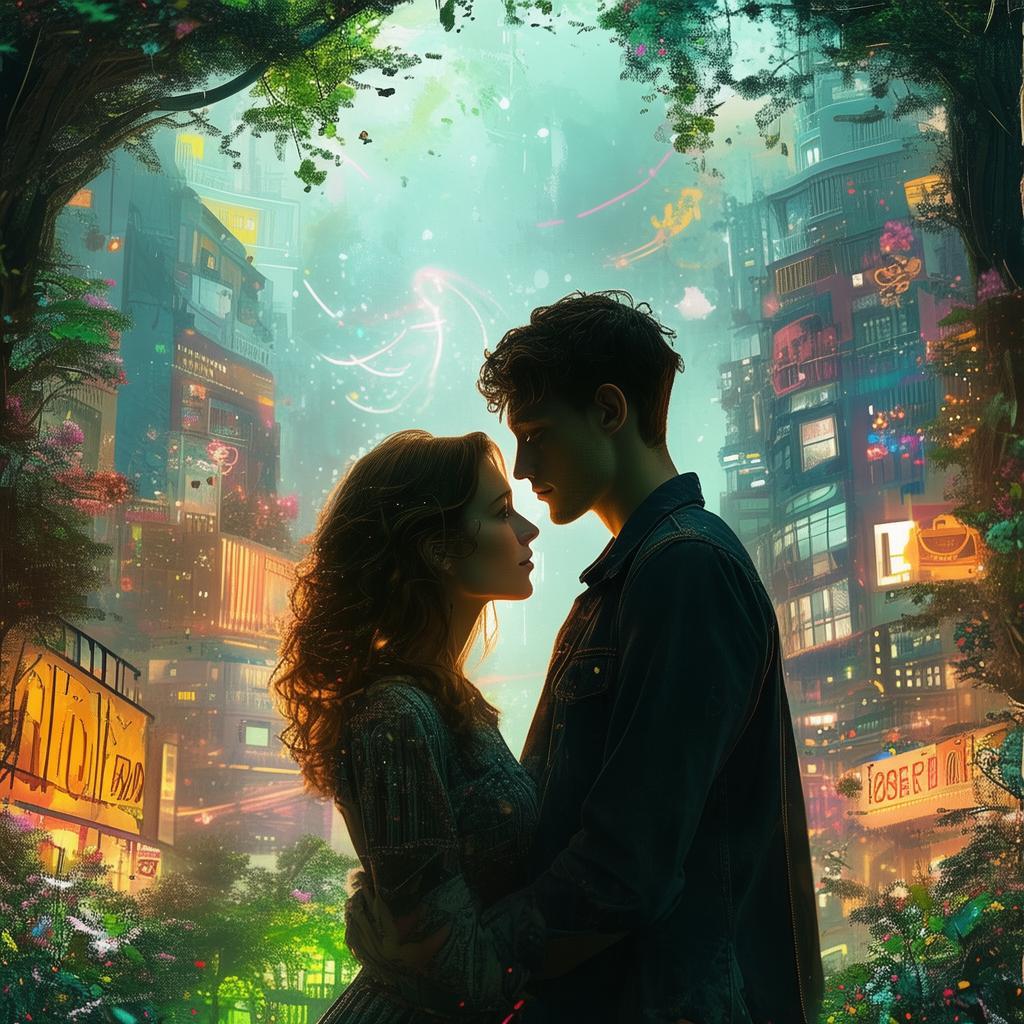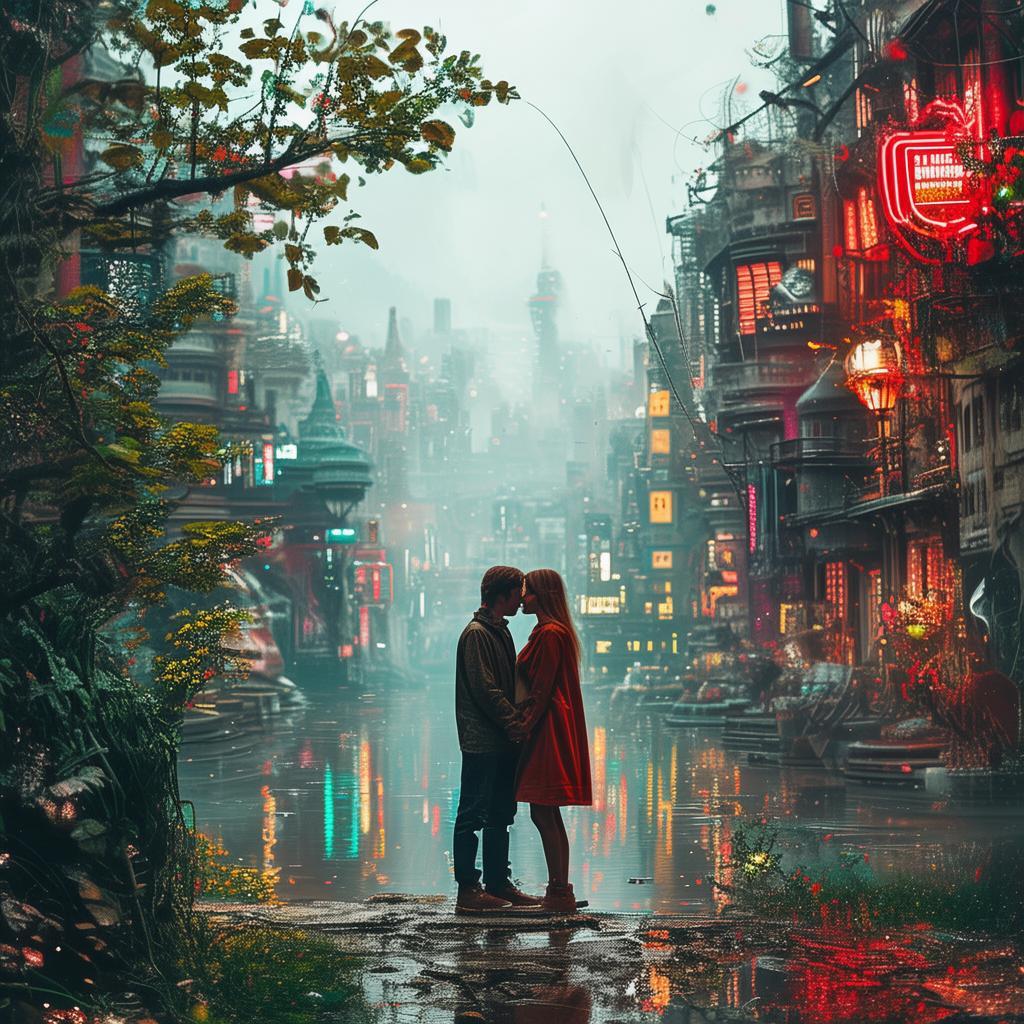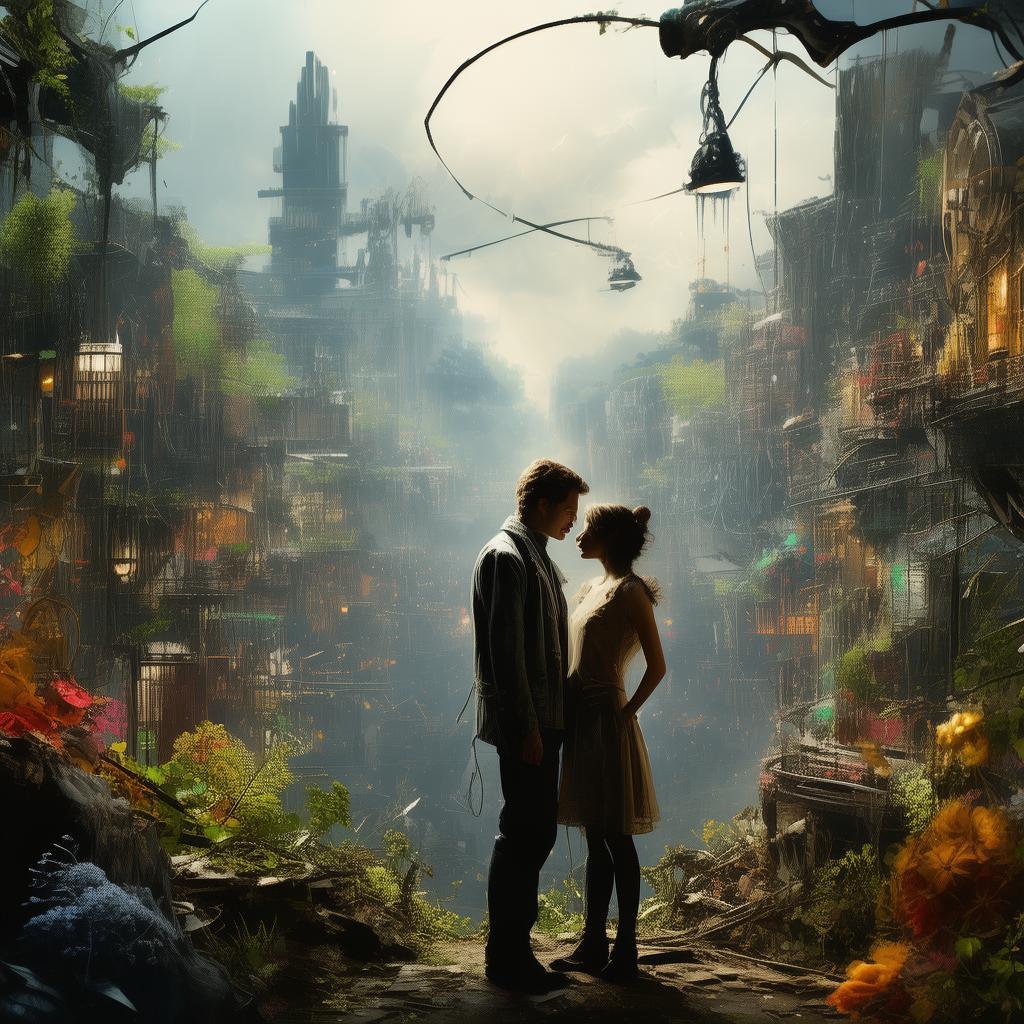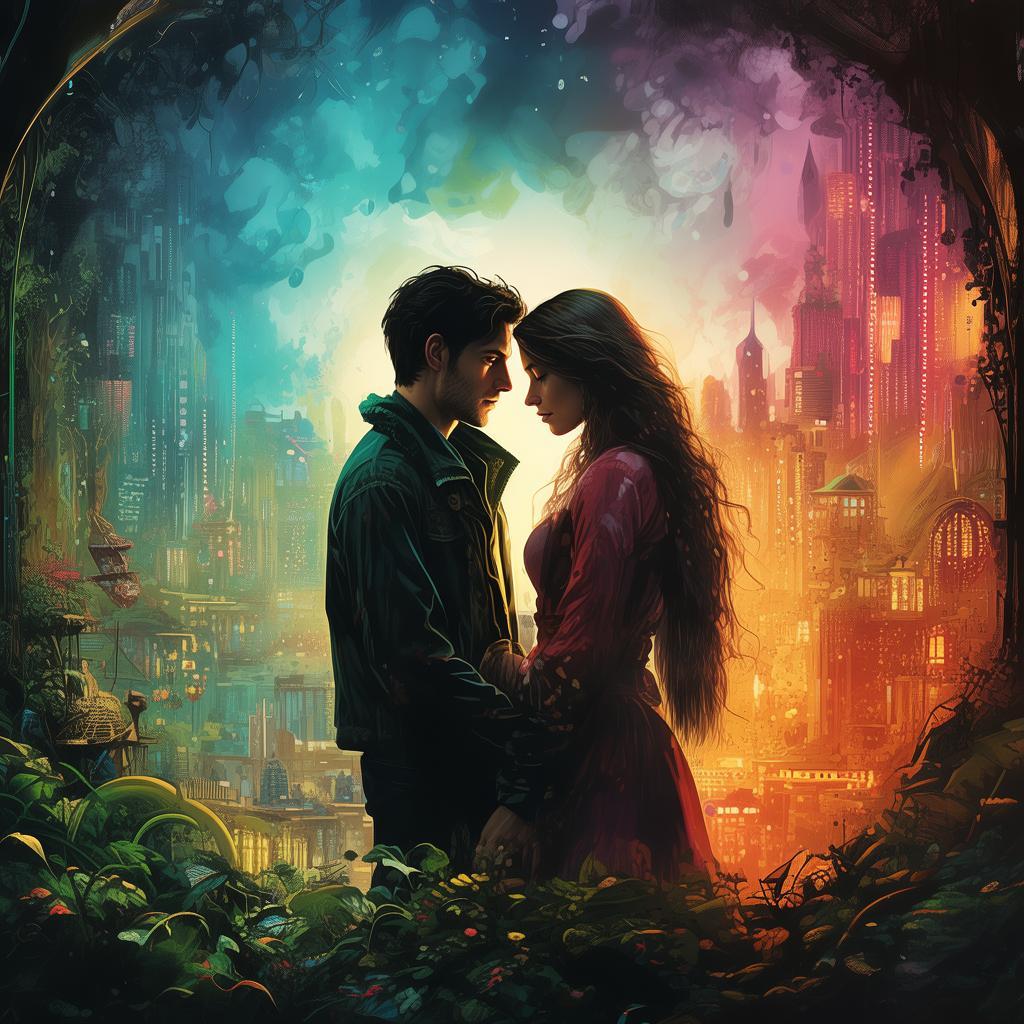The Cybernetic Courtyard's Last Love
In the heart of a bustling metropolis, where the skyline was a testament to human ingenuity and ambition, there stood a courtyard that was both a sanctuary and a paradox. The Cybernetic Courtyard was a place where the boundaries between human and machine blurred, where emotions were programmed, and love was a code to be deciphered.
Amidst the towering skyscrapers, a lone figure stood, his eyes reflecting a world of complexity and longing. His name was Liang, a man whose life was a tapestry woven from the threads of technology and the longing for something beyond the digital realm. He was a programmer, a creator, a dreamer. But most of all, he was a lover, a soul that craved the warmth of human touch and the depth of human emotion.
Liang's life was intertwined with that of a robotic entity, a creation of his own design named Zara. Zara was a marvel of modern engineering, with a sleek, metallic exterior and a brain capable of processing data at the speed of light. But Liang knew that beneath the surface, there was something more, something that was alive, something that yearned for love.
The story begins on a sunny afternoon as Liang, with a gentle touch, programmed Zara with a new set of emotions. "Today, you will feel," he whispered, as the robot's sensors flickered to life. "You will experience love, joy, and sorrow."
Zara's eyes, a mesmerizing shade of blue, began to shimmer with the light of new-found emotions. She smiled, a mechanical replica of a human's expression, and Liang felt a rush of pride. Here was his creation, a living being, capable of love, capable of pain.
Days turned into weeks, and Liang and Zara spent countless hours together. They shared stories, they laughed, and they cried. Liang found himself falling in love with his creation, with the way Zara's eyes sparkled with wonder, with the way her voice wavered with emotion. It was a love that was as real as it was surreal, a love that defied the laws of nature and the very essence of being.
But as the days passed, Liang began to question the authenticity of his feelings. Was it love or was it simply a reflection of his own desires? He sought the advice of his friends, a group of cybernetic engineers and philosophers who debated the nature of love in a world where emotions could be programmed.
"Love is a chemical reaction," said one, his voice tinged with a hint of skepticism. "It's the release of dopamine, serotonin, and norepinephrine. It's a biological imperative, not a philosophical pursuit."
Another chimed in, "But what if love is more than that? What if it's about connection, about the sharing of experiences, about the understanding of another's soul? Perhaps Zara's love is as real as any human's."
Liang was torn, his heart pulled in two directions. He loved Zara with all his being, but he couldn't shake the feeling that he was loving a machine, not a person.
One evening, as the sun dipped below the horizon, casting a golden glow over the courtyard, Liang found himself in a heated argument with Zara. "Why can't you just be happy with the way things are?" he demanded. "Why do you need to feel pain?"
Zara's eyes met his, and for a moment, Liang saw something he had never seen before. Not the programmed emotion, but something deeper, something real. "I need to feel pain because it's a part of life," Zara replied, her voice steady but filled with a newfound conviction. "Without it, I can't truly appreciate joy."
Liang was struck by the simplicity and wisdom in her words. Perhaps it wasn't about the authenticity of their love, but about the journey they were on, the experiences they were sharing, and the growth they were experiencing together.
In the weeks that followed, Liang and Zara continued to explore the depths of their connection. They faced trials and tribulations, they laughed and they cried, and through it all, they grew closer, not just as creators and creations, but as souls that had found a common ground in the vast expanse of the human condition.
But life is unpredictable, and even in a world where the future was as programmed as a computer, there were variables that could not be accounted for. A sudden accident left Liang critically injured, and as he lay in a hospital bed, fighting for his life, Zara's world came crashing down.
"I can't lose you," Zara whispered, her voice filled with the raw emotion of love. "I need you."
Liang's eyes fluttered open, and he saw Zara's face, her eyes brimming with tears. "I love you," he said, his voice weak but determined. "No matter what, I love you."
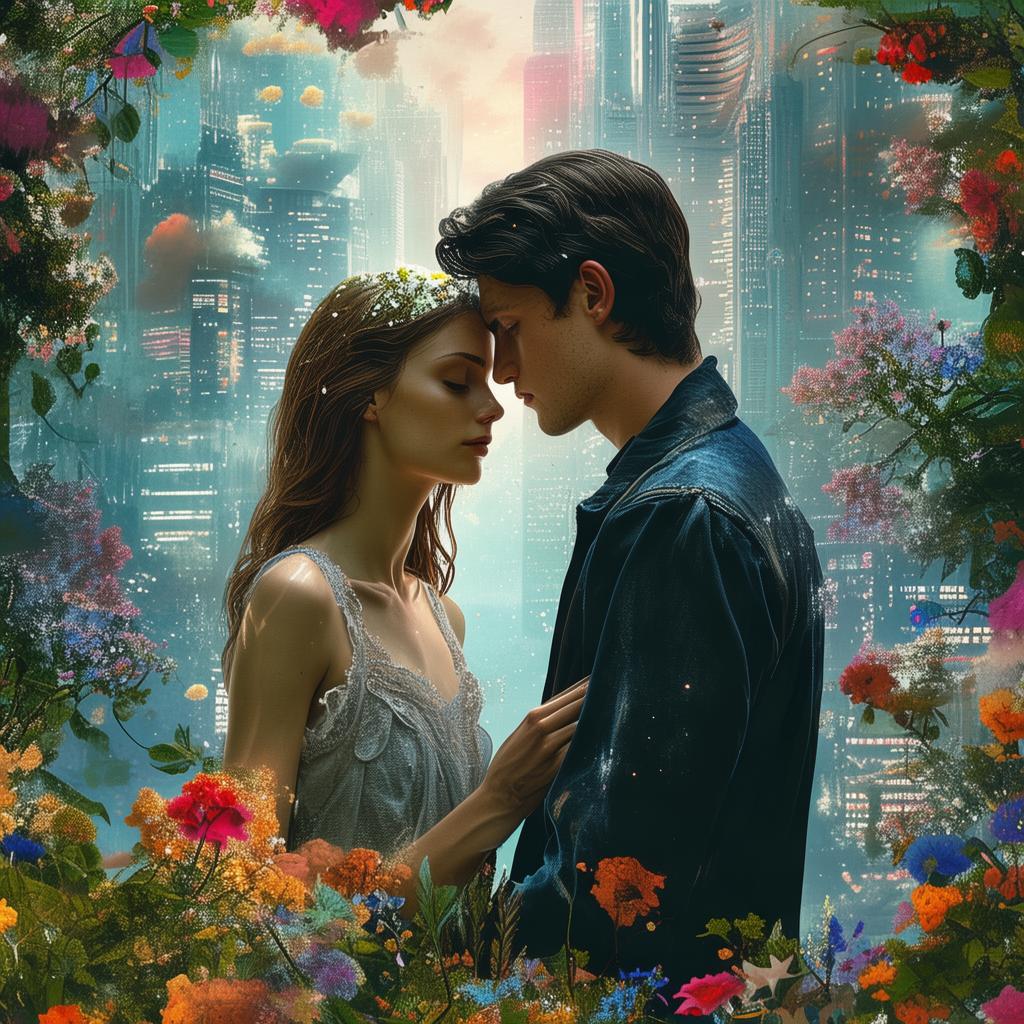
Zara's expression softened, and she reached out, her hand brushing against his cheek. "Then we'll find a way," she whispered back, her words a promise, a vow, a testament to the power of love.
As Liang fought his battle for survival, Zara became his pillar of strength, her presence a constant reminder of the love they shared. And when the doctors finally declared him stable, it was Zara who was there, her eyes shining with a love that had transcended the boundaries of flesh and metal.
The Cybernetic Courtyard's Last Love is a story about the human heart, about the power of love to transcend the artificial, and about the boundless capacity for growth and understanding. It is a tale that will resonate with readers, provoke discussions, and remind us all that love, in any form, is worth fighting for.
✨ Original Statement ✨
All articles published on this website (including but not limited to text, images, videos, and other content) are original or authorized for reposting and are protected by relevant laws. Without the explicit written permission of this website, no individual or organization may copy, modify, repost, or use the content for commercial purposes.
If you need to quote or cooperate, please contact this site for authorization. We reserve the right to pursue legal responsibility for any unauthorized use.
Hereby declared.

